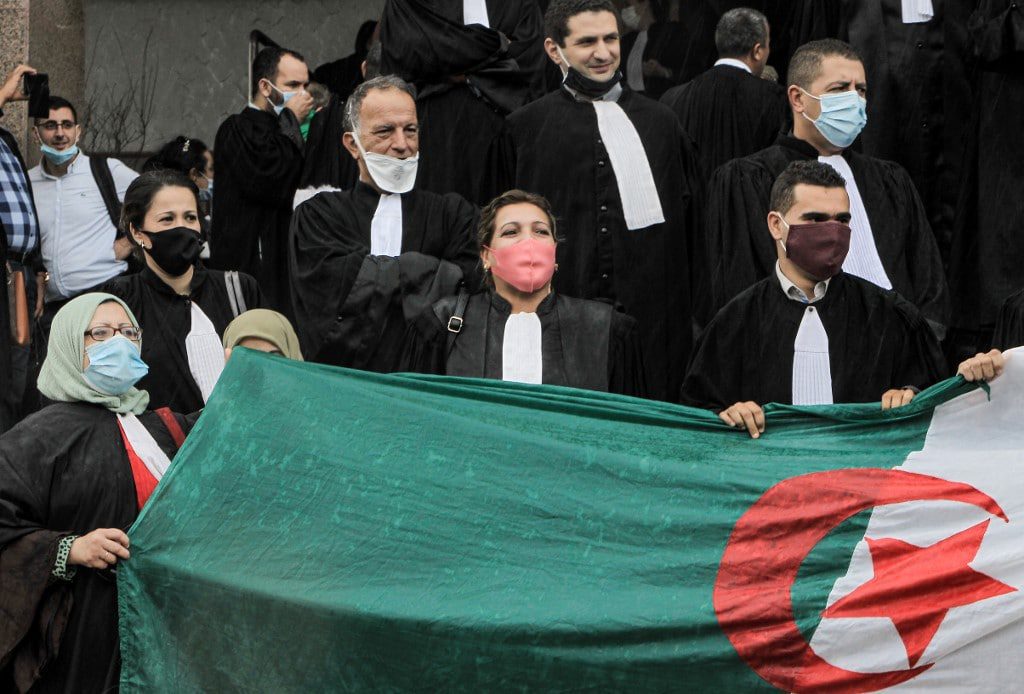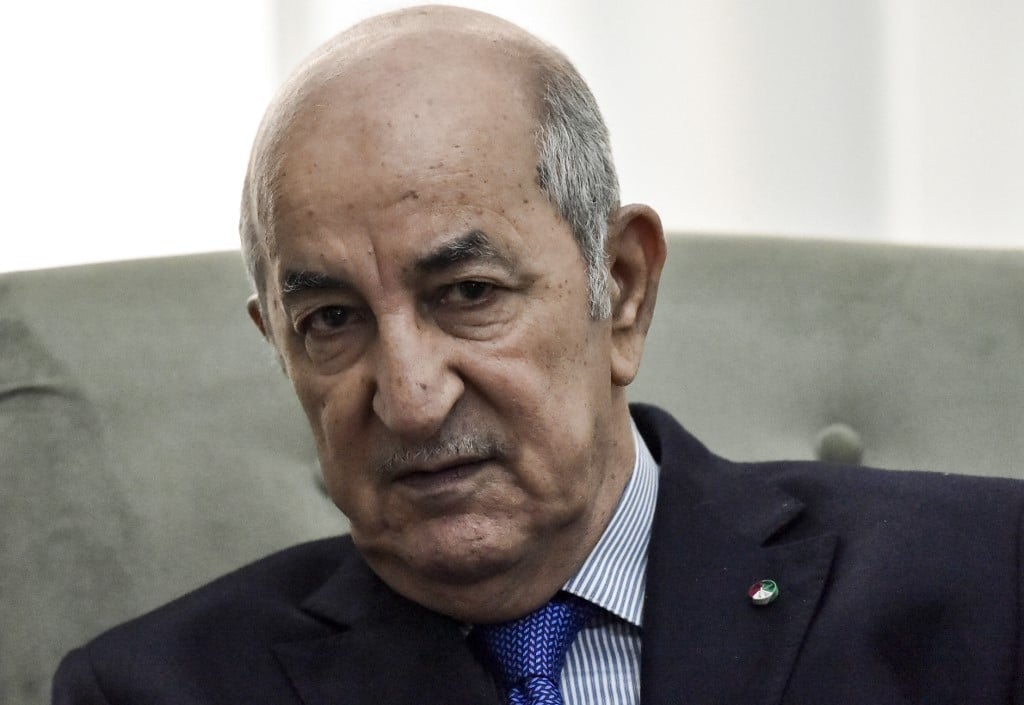
By: Sophia Akram
COVID-19 has upended life for much of the world. Yet, in Algeria, it has put the country on an even more precarious path than before the pandemic. The republic now faces questions around a new leadership, already shortly after an election and constitutional referendum, with further consequences for its social, economic and political future.
The North African country has endured political unrest since February 2019 after protests erupted against a fifth term of Abdelaziz Bouteflika’s presidency.
While the National Liberation Front leader stepped down by April, demonstrations continued, demanding a stop to the same opaque network of military, political and economic elites running the government, referred to as “le pouvoir”.
In order to appease those leading the charge (the Hirak), elections were promised and, afterward, constitutional change.
For many, such measures were surface level with little real change for the people of Algeria. What’s more, the coronavirus pandemic has thrown the country deeper into crisis and uncertainty, compounding the already existing fractures in Algerian society.
Confirmed coronavirus cases have breached 85,000 and there have been more than 2,400 coronavirus-related reported deaths in the country since the pandemic began, while the country’s leader himself, President Abdelmadjid Tebboune, has also taken ill with the virus.
Tebboune was hospitalised in Germany on 28 October 2020 for “in-depth medical examinations”, according to official sources, after contracting COVID-19, and after an outbreak among his aides. There has been scant word of him since the end of November 2020.
That absence and uncertainty are leaving a vacuum reminiscent of Bouteflika’s stroke in 2013 that saw him infirmed in a French facility for 80 days, leaving the country ungoverned, contrary to constitutional dictates.
Some have questioned the credulity of the messaging coming from the president’s office, which has only delivered vague updates to his treatment.
A so-called ‘publicity stunt’ on 1 November 2020, the date of the country’s latest referendum, involving the president’s wife posting her ballot, is also thought to convey that there is nothing to worry about.

Tebboune’s “long absence due to illness, combined with a ‘protocol’ of information double-speak, indicates that the president really is sick”, said Algerian political scientist Mohamed Hennad, speaking to AFP.
However, should he remain in “temporarily impairment” for more than 45 days, the constitution requires his resignation and an interim replacement.
No-one from the president’s office has given way to whether Tebboune is fit to govern, providing added uncertainty to the country’s already precarious situation. The last communication appeared on 30 November 2020, suggesting he may return to the country in the next few days after completing anti-coronavirus treatment.
The economy of Algeria has suffered for some time, itself a compound effect from years of bad economic choices.
Foreign exchange reserves are set to dip from $60 billion last year to $44 billion by the end of 2020. IMF has predicted a 5.2 percent contraction in GDP this year.
A further hit to oil prices will have an additional toll on the government’s revenues.
This outlook gives the country few resources to fight the scourge of the disease, which will affect not only the health sector but also its social infrastructure, in a state where youth unemployment is already high.
To counter these impacts, the government has announced a freeze on corporate taxes and loan payment deferrals, but with only cash transfers to the equivalence of $80 to the most low-income households, these measures could do little to help a large body of the population. In all it could lead to wider disenfranchisement.
It is that kind of social disquiet that has mobilised elements of the Hirak in the first place.
While crackdowns on the movement have taken place since its rising, authorities have been wise enough to show enough restraint not to prompt a full-on backlash.
However, under the guise of health-induced restrictions, lockdown measures have been used to quash popular dissent through increased arbitrary arrests and policing of information.
By April this year, Tebboune signed into law the criminalisation of “fake news”, subscribing $3,900 fines and five-year jail terms for breaches. Critics have predictably been targeted by the legislation, but also members of the Hirak.
The deteriorating human rights situation in Algeria has even gained the attention of the European Parliament, which has paid particular note to the sentencing in September 2020 of journalist Khaled Drareni, a case highlighting the escalation of politically motivated repression.
When Tebboune came into power, he aimed to placate parts of the country through promises of reform; the vehicle through which it was done was the tried and tested but not widely endorsed referendum for proposed amendments to Algeria’s constitution.
Rather than legitimise the government, its purported aim, it failed to achieve more than a 23 percent turnout, a record low for any poll.
Among those who voted, 66.8 percent supported the text.
The vote took place on the symbolic date of 1 November 2020, the start of the 1954 Algerian war of independence against France, drawing comparisons to the “day of liberation”.
The constitutional council president Kamel Fenniche said it was a “transparent” vote “held “under good conditions”, and is now touted as a linchpin of a “new republic” or “new Algeria”.
However, the process replicated much of the old way of instigating constitutional amendments under Bouteflika, with Tebboune appointing committee members tasked with the text’s drafting.
The resulting constitution preserves the president’s dominant position, reserving them alone the power to initiate constitutional change. Other articles, say commentators, have cosmetic and little value for the people of Algeria.
The crackdown on journalists and protestors proves that constitutional amendment to safeguard liberty and freedom is little regarded. As does precedent.
With the president’s ominous situation, come 12 December 2020, it will be seen whether Article 102 of the constitution will be invoked.
Should that happen, 89-year-old Salah Goudjil, the acting Senate president, will serve as interim leader until fresh elections can occur.
Attendance at Algeria’s poll has been waning. Even before the referendum’s farcical turnout, Tebboune’s own election was only legitimised by 40 percent of the population.
Next steps will be overseen by a constitutional court that replaces a discredited constitutional council. Although, the president under this new structure has much more oversight over the appointment of its members.
If things were bad before the pandemic, they are certainly worse now. That could mean renewed protests as soon as restrictions lift.
Demands from the Hirak remain the same, including disentangling the army from the government, releasing political prisoners, and the election of a constituent assembly, demands the regime is unlikely to fulfil.
There is certainly a camp in Algeria that sees little more progress from the Hirak movement, imploring new ways to enact change by forging ties in formal political circles or through civil society and unions.
Another view is that the pandemic is straining the regime’s own “human capital and infrastructure” and that could make a broader and more intense uprising difficult to quell.
The only thing certain is that Algeria’s future is far less than clear.
DISCLAIMER
The opinions expressed in this publication are those of the writer(s). They do not purport to reflect the opinions or views of Fanack or its Board of Editors.


